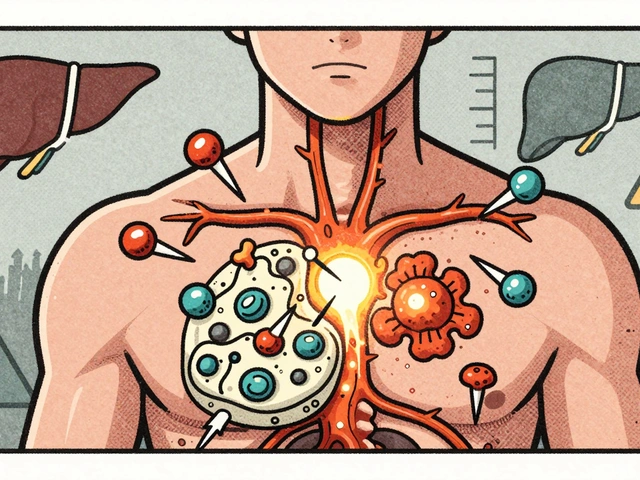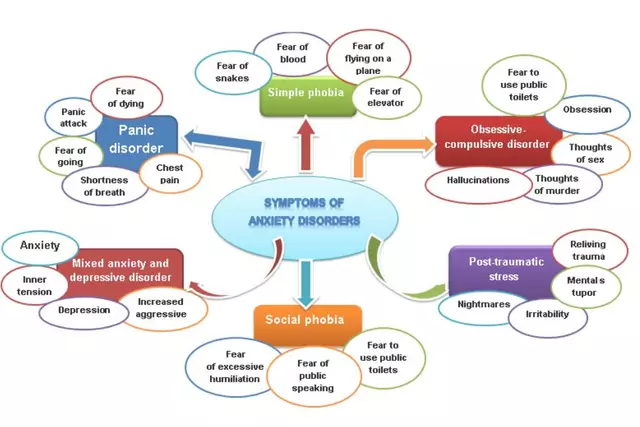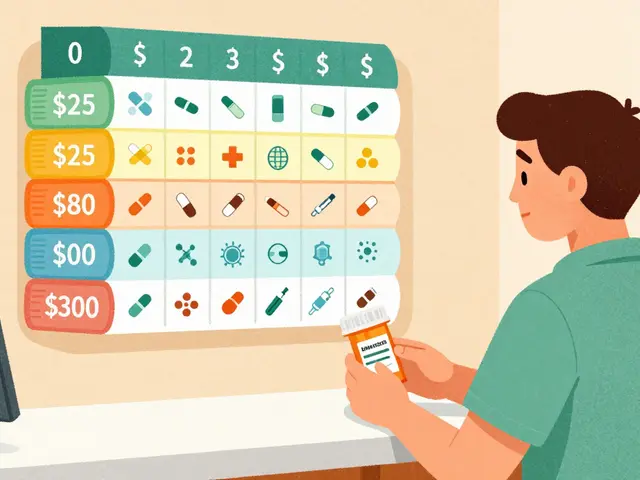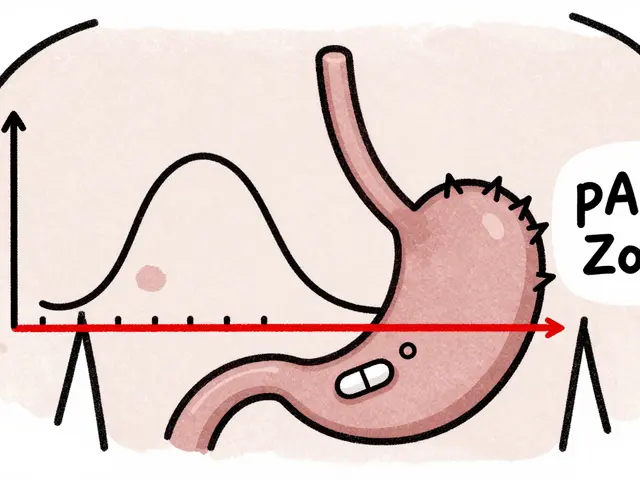Targeted Therapy: How It Works and What to Ask
Targeted therapy uses medicines that zero in on specific features of cancer cells — think of it as a guided missile rather than a shotgun. Instead of hitting all fast-growing cells like traditional chemo, targeted drugs block molecules that tumors need to grow, divide, or spread. That precision often means better results with different side effects.
So what does that mean for you? If your tumor has a matching change — a mutation, protein, or receptor — a targeted drug can be far more effective than general chemotherapy. But the match has to be right. That’s where testing and careful decision-making come in.
How targeted therapy is chosen
Doctors pick targeted drugs after testing the tumor for specific biomarkers. Common examples: EGFR and ALK in lung cancer, HER2 in breast cancer, BRAF in melanoma, and BRCA for some ovarian or breast cancers. Tests can use tumor tissue or blood (liquid biopsy). Ask your oncologist which tests are relevant for your cancer type and whether repeat testing makes sense if the disease changes.
Not every patient will have a targetable change. When there isn’t one, options include standard chemo, immunotherapy, clinical trials, or combinations of treatments. Targeted drugs can also work with other therapies — doctors often combine approaches to improve outcomes.
Practical tips for patients
Get a clear name for the biomarker and the recommended drug. Ask how the medicine works, how it’s given (pill or infusion), how long you’ll be on it, and what side effects to expect. Some targeted drugs cause rashes, high blood pressure, or liver enzyme changes — different from classic chemo side effects. Make sure you know which symptoms need immediate attention.
Cost and access matter. Many targeted drugs are expensive. Ask about financial help, generic options, patient assistance programs, or if a nearby clinical trial could cover treatment. If you’re considering buying medication online, be cautious: use accredited pharmacies, confirm prescriptions with your doctor, and avoid sites that don’t require a prescription or lack verifiable contact details.
Keep records of scans, test reports, and drug names. That makes second opinions and referrals to specialists smoother. If your cancer stops responding, ask about re-testing the tumor — resistance changes can create new targets or point toward different drugs.
Finally, don’t forget quality of life. Targeted therapy often allows people to stay more active than with heavy chemo, but side effects still matter. Talk openly about fatigue, mood changes, sleep, and daily activities so your care team can help you stay comfortable while you’re being treated.
Need steps to find reliable information or vetted online pharmacies? Check with your oncology center, national cancer organizations, or trusted medical sites. If you have questions about a drug name or a pharmacy, bring the details to your provider — it’s an easy way to avoid mistakes and stay safe.

- Jun 12, 2023
- Posted by Cillian Osterfield
Understanding the mechanism of action of Imatinib
As a blogger, I've been researching the mechanism of action of Imatinib, a groundbreaking drug used to treat certain types of cancer. Imatinib works by specifically targeting and inhibiting the activity of abnormal proteins, known as tyrosine kinases, which are responsible for uncontrolled cell growth in cancers like chronic myeloid leukemia. By blocking these proteins, Imatinib is able to effectively stop the progression of cancerous cells. This targeted therapy has revolutionized cancer treatment, resulting in better outcomes and fewer side effects for patients. Understanding the mechanism of action of Imatinib helps us appreciate the advancements in cancer therapy and the potential for developing more targeted treatments in the future.
Categories
- Health and Wellness (72)
- Medications (68)
- Health and Medicine (28)
- Pharmacy Services (12)
- Mental Health (9)
- Health and Career (2)
- Medical Research (2)
- Business and Finance (2)
- Health Information (2)
Latest Posts
©2026 heydoctor.su. All rights reserved





